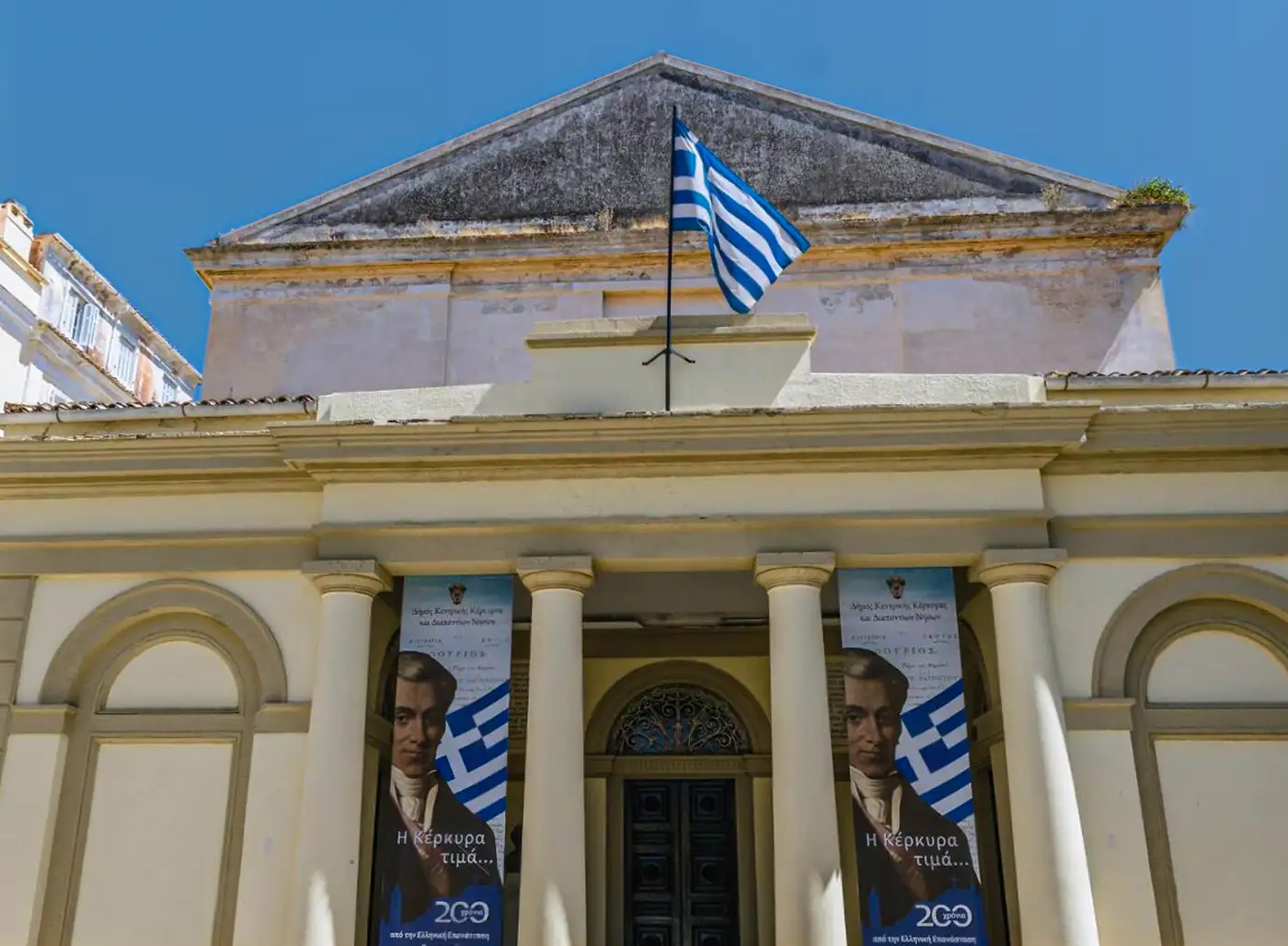The Ionian State represents one of the most interesting and often overlooked forms of governance in modern Greek history. It was established during a turbulent period, in the geopolitically critical area of the Ionian Islands, and served as a forerunner of the political maturation of the Greeks under foreign influence. Despite its relatively brief existence, the Ionian State and the Ionian Parliament that operated during its years left a significant legacy in the struggle for independence and the shaping of the political and institutional ethos of the modern Greek state.
The Ionian Islands (Corfu, Cephalonia, Zakynthos, Ithaca, Lefkada, Paxoi, and Kythira) had been under Venetian rule for centuries, until the fall of the Most Serene Republic of Venice by Napoleon in 1797. From that year, the region entered a phase of successive occupations and changes in power. Specifically, from 1797 to 1799, the islands were occupied by the French under Napoleon (French Republic). At the end of 1799, joint Russian-Ottoman forces expelled the French, and a new state entity was formed: the Ionian State, which was officially recognized with the Treaty of Constantinople in 1800.
It is worth noting that the Ionian State was the first autonomous Greek state in modern history, even though it was nominally under the suzerainty of the Ottoman Empire and the protection of the Russian Empire. The Ionian State lasted from 1800 to 1807, when the Ionian Islands were reoccupied by Napoleonic France. The second French occupation lasted until 1814. Subsequently, the Congress of Vienna (1815) placed the islands under British protection, and the “United States of the Ionian Islands” was established. Although the Ionian State from 1800–1807 had a limited lifespan, its institutional structure was highly significant, as it marked the first attempt at creating a framework for Greek self-governance with constitutional features. It was a state with a national symbol and flag, constitutional organization, a parliament and a senate, justice system, and a clear identity for the Ionians as a “Nation.”
The Ionian State was organized as a federation of the Ionian Islands, with political unity but the retention of local administrative autonomy. Its main political institutions were: The High Commissioner (or President), appointed by the protecting power (initially Russia, later Britain). The Senate, an executive body functioning as the government. The Ionian Parliament (Vouli), a legislative body composed of representatives from the islands. The Ionian Parliament was a major political innovation: it brought together representatives from the islands (indirect representation) and had the right to propose and vote on laws, which were then ratified by the Senate and the High Commissioner. Although it was not a full parliamentary democracy, it was the first organized expression of parliamentary dialogue and Greek political representation in modern times. The Parliament consisted of representatives elected (indirectly) by the nobility and upper social classes of the islands. Its composition reflected the feudal structure of the Ionian society, as access to political power was limited to individuals of high social or economic standing. Nevertheless, its significance should not be underestimated. Through the workings of the Ionian Parliament, political thought was cultivated, public debates took place, laws were recorded, and a primary Greek political culture was shaped, one that deeply influenced the revolutionary and post-revolutionary evolution of Greece.
In 1807, after the signing of the Treaty of Tilsit between France and Russia, the islands were handed back to France. The second French occupation lasted until 1814, when British forces took over the Ionian Islands. After the Congress of Vienna, the islands were organized as the United States of the Ionian Islands under British protection. This new state preserved some of the characteristics of the former Ionian State, such as the existence of the Ionian Parliament and local government institutions, though under stricter British control. This regime lasted until 1864, when the Ionian Islands were officially united with Greece. The Ionian State was a political experiment with a Greek identity, in an era of geopolitical conflicts and transformations. It was the first time that Greeks systematically participated in an organized state with their own administration, parliament, symbols, and political discourse. Despite its short duration, the State and the Ionian Parliament had a decisive impact on the development of institutional structures, the realization of political freedom, and national awakening.
Its legacy is clearly seen in the close association of the Ionian Islands with liberalism, education, political thought, and national consciousness. It is no coincidence that many significant politicians, scholars, and revolutionaries originated from the Ionian Islands, nor that this region was the first part of the Greek nation to be united with free Greece.





